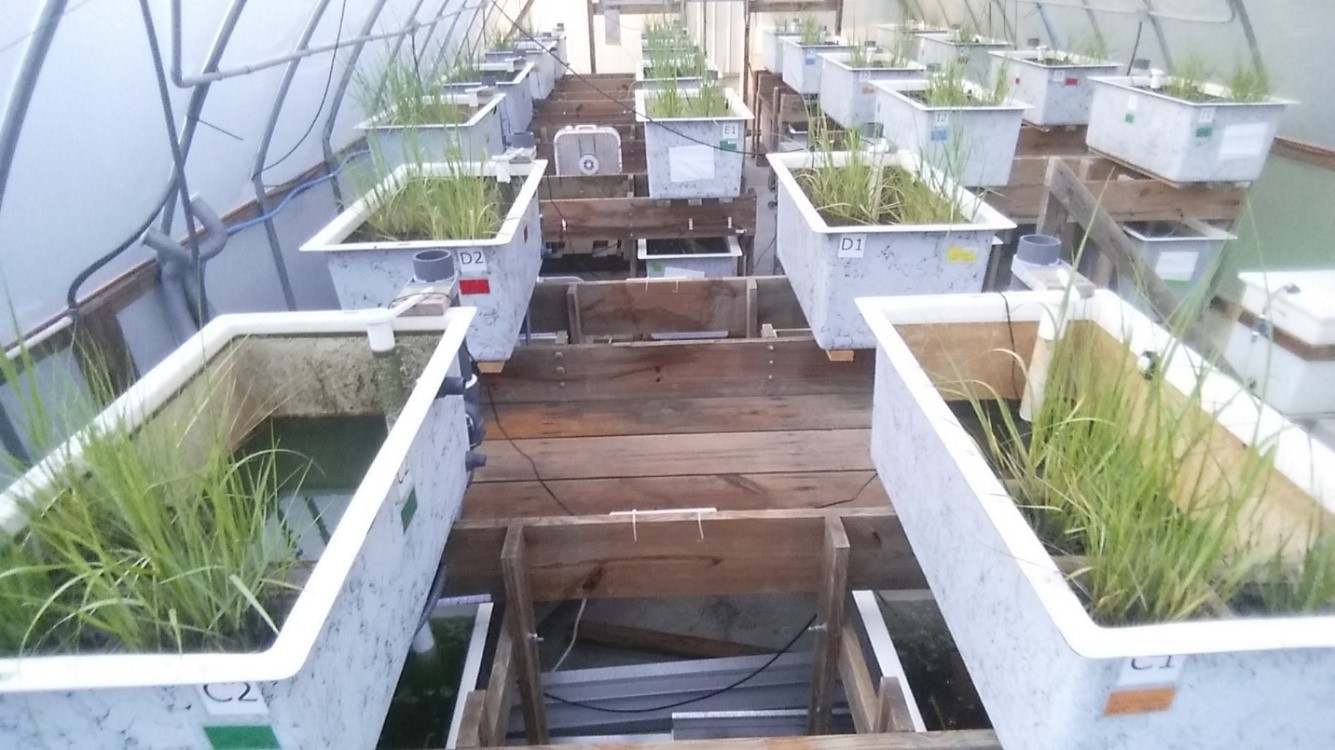
NCCOS and NOAA’s Office of Response and Restoration (ORR) are conducting a joint investigation to refine protocols for marsh grass replanting as an oil spill response tactic in coastal environments. Data from the study will be used to inform ORR decisions on marsh restoration practices following oil spills.
The researchers are using mesocosm experiments to test marsh plant responses to oil treatments and a variety of horticultural restoration techniques. For these experiments, the team recently collected sediment and marsh grass from a reference site and assembled 20 test systems at the NCCOS mesocosm facility in Charleston, South Carolina. Following a two month grow-in phase, the mesocosms will then be doused in No. 2 fuel oil (i.e., marine diesel fuel).
Remediation treatments will compare (1) leaving the marsh vegetation intact, (2) cutting and removing the marsh vegetation, (3) comparing nursery-raised plants to wild transplants, and (4) comparing bare-root plantings to containerized (plugs) plantings. While the marsh grass is growing, a College of Charleston graduate student and faculty member will test the utility of new imaging techniques for measuring plant growth.
